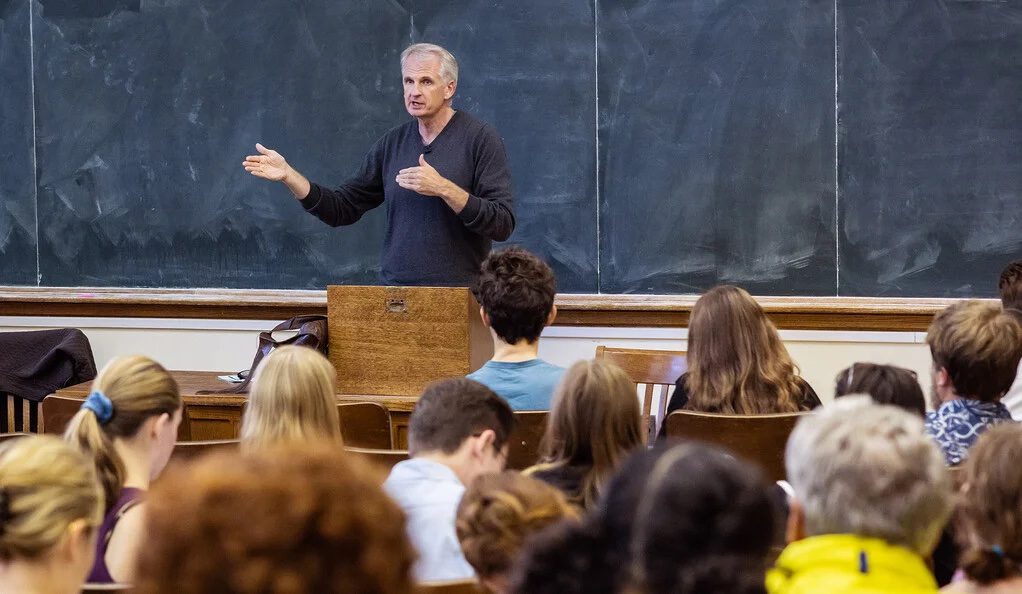Tim Snyder will lead 90 scholars in rethinking Ukrainian history
History professor Timothy Snyder will lead the “Ukrainian History Global Initiative” over the next three years in an effort to globalize Ukrainian history. The program was founded and is funded by a Ukrainian oligarch with close ties to former president Leonid Kuchma, who was implicated in the killing of journalist Georgy Gongadze.

Yale News
Over the next three years, five Yale historians will work on the efforts to rethink Ukrainian history in a global context in the “Ukrainian History Global Initiative” announced last week.
Professor of history Timothy Snyder announced the launch at a press dialog at the British Museum in London. The project will bring together 90 scholars to dive deeply into Ukrainian history. Snyder will chair the initiative’s academic advisory council, which also has four other Yale professors on it.
“The history of the 21st century looks different if you understand the reasons why Ukraine resisted the Russian invasion. So, this is not a project about the war. And it’s not a reaction to the war,” Snyder said. “Every time you look at some portion of European history … and you add Ukraine, it shifts … the whole modern history of colonialism and Empire.”
The planning for this initiative began three years ago, before the full-scale invasion of Ukraine in 2022. Snyder said that the Initiative plans to lay the foundation of “something that will endure after the war.”
The initiative was founded by Victor Pinchuk, a Ukrainian oligarch with close ties to former president Leonid Kuchma; Kuchma was implicated in the killing of journalist Georgy Gongadze.
Pincuk will also fund the program but, in conversation with the Guardian, insisted that the Initiative would be “absolutely independent” and that he had “zero influence” on it. Snyder told the News that he is confident that the project will indeed have no oversight from the funder.
“I’m not concerned in a negative way about this because the institutional and legal framework is very, very sound,” Snyder said. “This was his idea, and I’m going to give him credit for that. And then he has agreed to be in a position where he has no influence at all over what people actually do. That’s about as good as it gets in the real world.”
The goal of the initiative is to explore the history of the lands of modern Ukraine. Snyder hopes to bring the expertise of people who “don’t necessarily think of themselves as working on Ukraine” and “bring Westerners into Ukraine,” thus deepening the understanding of Ukrainian history from a global perspective.
The initiative will support the work of 90 scholars over three years. It will also sponsor three major academic conferences, various publications and archaeological excavations.
“Our project is different from other academic initiatives due to its vast intellectual ambition, aiming to explore the deep history of Ukrainian lands and peoples on a global scale,” Snyder said. “The way I designed this project was that Ukrainian history was going to be touching all kinds of other things, all kinds of other disciplines, all kinds of other histories.”
The final project will feature written products, with all content in Ukrainian translated into English and vice versa.
Snyder expressed hope that in addition to experienced scholars, Ukrainian students will also be involved as researchers.
“I joined the project out of admiration for my colleague Timothy Snyder and with the hope that I might be able to contribute historical perspective from my own area of expertise, the European Middle Ages,” professor of history Hussein Fancy, who serves on the project’s academic advisory council, wrote to the News.
The three other Yale professors on the council include three professors of history: Sunil Amrith, who studies transnational migration in Asia and environmental history, legal historian Rohit De and Marci Shore, historian of European intellectual history.
Yaroslav Hrytsak, a Ukrainian historian who serves as the council’s co-chair, told the News that he is excited to learn from the works scholars will produce during the Initiative. Following the end of the project, he hopes to rewrite his book “Overcoming the Past: The Global History of Ukraine” based on new insights from the initiative.
“I am afraid of a situation when Ukrainian scholars supply the [primary sources], and Western historians [analyze] them. This is what I call colonization,” Hrytsak said in Ukrainian.
However, since the voices of Ukrainian historians have been historically marginalized and discarded, Hrytsak believes that the “Ukrainian History Global Initiative” will improve the quality of discussion on Ukrainian history and its global role. 50 out of 90 researchers will be Ukrainians.
Timothy Snyder is the Richard C. Levin professor of history at the University.







